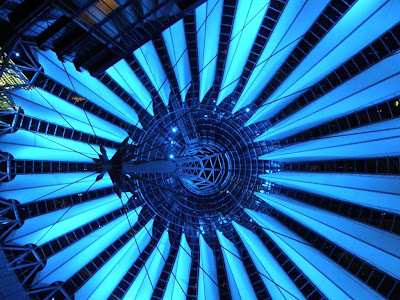Several years ago, one of my professors introduced me to a poem by Johann Wolfgang von Goethe called “Selige Sehnsucht.” (Maybe blessed yearning). It is one of the staples of German literary history and well known by most in German Studies.
Sag es niemand, nur den Weisen,
Weil die Menge gleich verhöhnet:
Das Lebendge will ich preisen,
Das nach Flammentod sich sehnet.
In der Liebesnächte Kühlung,
Die dich zeugte, wo du zeugtest,
Überfällt dich fremde Fühlung,
Wenn die stille Kerze leuchtet.
Nicht mehr bleibest du umfangen
In der Finsternis Beschattung,
Und dich reißet neu Verlangen
Auf zu höherer Begattung.
Keine Ferne macht dich schwierig,
Kommst geflogen und gebannt,
Und zuletzt, des Lichts begierig,
Bist du Schmetterling verbrannt.
Und so lang du das nicht hast,
Dieses: Stirb und Werde!
Bist du nur ein trüber Gast
Auf der dunklen Erde.
Once again my poor attempt at a translation. Sorry for the lack of rhyme and meter:
Blessed Yearning
Tell no one, only the wise,
For the masses will only mock:
That which lives I will praise,
That yearns for death in flames.
In the cool of the nights of love
That begat you, where you begat.
Falls over you the foreign feeling
When the silent candle shines.
No distance is too far,
Spellbound, you come flying,
And at last, covetous of the light
You, butterfly, are burned.
And as long as you cannot grasp that,
This: Die and Become!
You are but a dreary guest
on the darkened Earth.
There is far more in this poem than I can probably discuss at the moment. Obviously the final stanza makes a powerful statement for roll death plays in one’s life and in one’s existence. The butterfly’s
flaming death suggests that it is not just death but the manner of death–the striving toward light–that brings meaning to life.
But the part that has always made me wonder was a claim by my professor that the Greek word for butterfly was psyche , a fact that I have had a hard time verifying, but that may be substantiated
here. In Greek mythology (at least as we have this story handed down by the Romans–nothing is ever simple) Psyche is a mortal so beautiful that all the worshipers of Aphrodite have left the temples to go and worship Psyche. Angered, Aphrodite sends her son Eros to make Psyche fall in love with the ugliest thing possible. Instead, Eros pricks his own finger with the arrow intended for Psyche and falls in love with her. The two are married, but Eros refuses to appear in daylight, coming to her only at night. Her sisters, jealous of her happiness, convince Psyche to light a lantern and discover her husband’s identity. In response, Eros flees and Psyche is left heartbroken (and angry at her sisters). Eventually, Psyche must enter into Aphrodite’s service and perform a series of impossible tasks in order to win back her husband. In the last of these, she must descend into Hades and bring back a jar containing Persephone’s beauty. When she tries to partake of this beauty, however, she falls down, as if dead. In the end, Zeus intervenes, and she is reunited with Eros and becomes immortal with him as she joins the other deities.
On my recent trip to Germany, I ran into Psyche once or twice and it got me to thinking. In the Berlin museum of art, there is a statue in one of the stairwells of Pan consoling Psyche. It is hard to imagine the debaucherous Pan of having very pure intentions in his efforts. The statue is intensely sensuous and seeing it, I wanted to warn her against what the old goat had on his mind. But Psyche is more resourceful than one might think looking at her and I suspect that in the end her beauty (so often a stand in for goodness, a trope I have no desire to deconstruct at the moment--and excuse me for using the words deconstruct and trope in the same sentence) will save her again.

My second encounter was a family grouping outside the Zwinger in Dresden. Here, Psyche, Eros, and presumably Aphrodite appear to have reconciled and the happy end seems assured. I wonder at the placement of the statue and what the sculptor intended with his composition, but I like this one, too. There is also
this representation that I found on the web that is intriging.

In both sculptures, Psyche’s butterfly wings are clearly visible, establishing the connection that I had wondered about earlier. The word “psyche” in Greek means breath or air and has by extension connotations of spirit and soul.
So in this context, the figure Psyche becomes a symbol for the longing of a mortal soul to be joined with the divine, and the efforts one will take, even if it means descending into death to do it. The more I learn of the story, the more impressed I am in Goethe’s ability to weave the various elements of it into his poem. For me there is something vividly mystical about the poem and the mythology in the idea that the soul, psyche, wants to be united with the heavens. At first reading, Goethe’s poem may seem to be a justification for suicide. But in reality, I think it is an appellation for life lived to it’s fullest, for a Thoreauean effort to suck the marrow out of life and live deeply and deliberately so that in the end, we will not discover that we have not lived at all.
 By the way, no stone lions were injured in the composition of this post, but 3 of the four stone horsemen have already left the game. My apologies to Ron Weasley.
By the way, no stone lions were injured in the composition of this post, but 3 of the four stone horsemen have already left the game. My apologies to Ron Weasley.






































